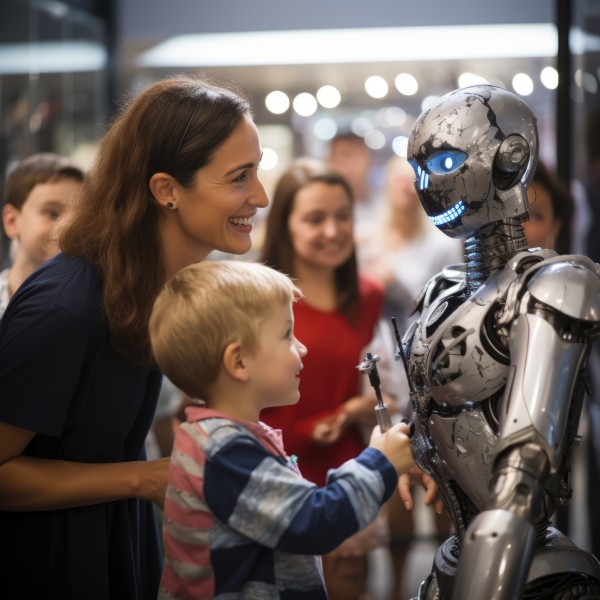

Collaborative Win-Win in Technology and Application
In projects related to embodied intelligence and humanoid robots, we adhere to the core philosophy of "technology symbiosis and scenario integration," committed to building an open, collaborative industry ecosystem. By connecting humanoid robot developers, embodied intelligence algorithm providers, scenario demanders (e.g., healthcare, education, services), and upstream/downstream partners, we drive deep alignment of technology, demand, and commercialization:
● Jointly tackle key technologies: Collaborate on breakthroughs in multimodal interaction, dynamic balance control, and environmental perception algorithms.
● Co-build scenario-based testing bases: Establish facilities for applications like elderly care, retail services, and industrial assistance.
● Share data resources: Create anonymized pools of human-robot interaction and environmental adaptation data to accelerate R&D.
● Encourage cross-domain partnerships: Facilitate AI firms and hardware manufacturers to co-develop specialized chips, and enable scenario partners to co-define product requirements.


Standardization and Industry Leadership
We prioritize compliance with national and international standards (e.g., ISO safety protocols, AI ethics guidelines, data privacy laws) and work with industry associations to create detailed scenario-specific rules (e.g., interaction safety for service robots, content compliance for educational robots). Our comprehensive management system covers:
● Pre-event compliance checks: Assess robot safety, algorithm transparency, and accessibility.
● In-operation monitoring: Enforce human-robot isolation zones and real-time performance tracking.
● Intellectual property protection: Establish patent pools for rapid rights confirmation.
● Dispute resolution: Form cross-disciplinary expert committees to mediate conflicts.


Technology for Good: Social Responsibility
We believe technology should serve humanity. Our initiatives include:
● STEM Education: Launch "Humanoid Robot Science Workshops" for youth, combining programming and interactive experiences.
● Inclusive Technology: Develop customized robots for visually impaired individuals and the elderly, with public demonstration zones.
● Digital Inclusion: Partner with schools to donate educational robots and curriculum to underserved regions.
● Disaster Response: Collaborate on rescue robots and accessibility optimization technologies.


Low-Carbon Manufacturing: Green Technology Practices
We integrate sustainability into every stage of the industry lifecycle:
●Eco-friendly events: Use smart lighting systems, AR-based digital manuals, and showcase energy-efficient robots.
●Sustainable design: Promote biodegradable materials, modular manufacturing, and recyclable components.
●Carbon neutrality: Track event emissions and offset through green energy procurement and reforestation projects.




